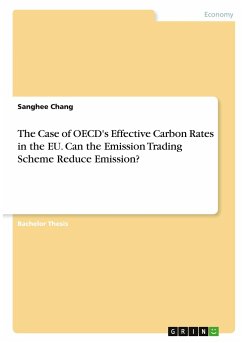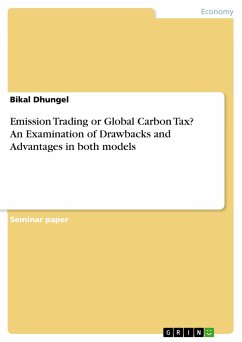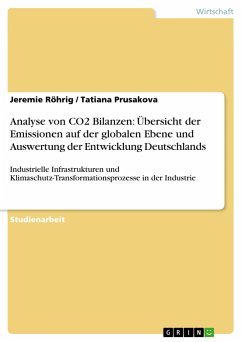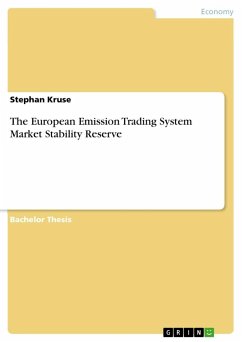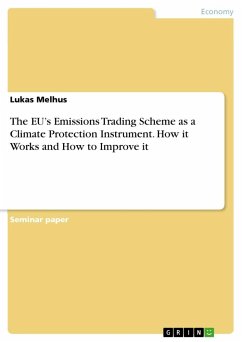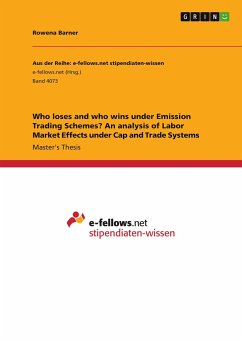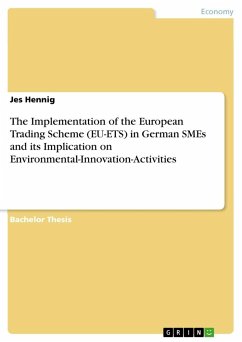Bachelor Thesis from the year 2020 in the subject Economy - Environment economics, University of Münster, language: English, abstract: The study aims to investigate whether the "Emission trading scheme" (ETS) of the EU can effectively achieve the reduction of emission, energy conversation. The question whether ETS can save energy and reduce emissions in underdeveloped nations is a key factor for those countries in achieving environmental development and sustainable economy. This research looked at the CO2 reduction and energy-saving policies implemented in the EU in 2011. Moreover, by examining the data from two two-digit industry panels for the period 2005-2015, we adopted a Differences Model (DID) to explore the effect on CO2 energy savings and reduction of emissions. The results show that, compared to untested areas, the Emissions of CO2 trading scheme has reduced consumption of energy in regulated industries by 22.8 percent and Emissions of CO2 by 15.5 percent in the pilot areas. Further analysis shows that the effect of the policy is mainly due to the improvement of energy technology efficiency and the modification of industrial infrastructure. Besides, we have found that "carbon trading" works best in areas with a high level of law enforcement and marketing of the environment. Generally, our results show that "carbon trading" has saved energy and reduced emissions in underdeveloped nations.

